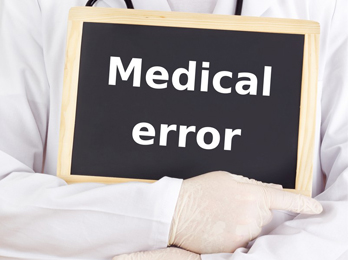Many physicians in the US have voiced their concern online regarding the conventional healthcare system and how it needs to be changed. The United States has the most expensive healthcare in the world, spending more on healthcare than the next ten biggest spenders combined, that is, Germany, Japan, France, UK, Italy, Brazil, Canada, China, Australia and Spain. The irony however, is that compared to 17 other developed nations, the US ranks low in health and mortality.
Side effects of treatments kill many people in the US, and preventable errors also account for a large number of deaths. According to new research, it is estimated that almost 210, 000 – 400,000 Americans are killed by preventable hospital errors each year. This is more than 4.5 times higher than the 1999 estimates published by the IOM (Institute of Medicine). Thus medical errors are now the third leading cause of death in the US, after heart disease and cancer.
Using new research techniques to identify specific evidence in medical records, scientists traced undesirable events that may have harmed a patient. They concluded that:
- Preventable errors in hospitals accounted for a lower limit of 210,000 deaths each year in the US.
- Taking into account the shortcomings of their research tool and the incompleteness of medical records, they estimated that the actual number of deaths associated with preventable hospital errors must be more than 400,000 per year.
- Serious medical errors were ten to twenty times more common than lethal errors.
The researchers called for a more serious consideration of the “epidemic of patient harm in hospitals,” so that it can be effectively curtailed.
The above quoted figures are shocking. It is rather distressing to note that people die from preventable hospital errors instead of the diseases and injuries that made them seek hospital service. Preventable errors include medication errors, surgical errors and infections among others. According to John T. James who runs Patient Safety America, an advocacy organization and a toxicologist at NASA’s space center in Houston, hospitals face huge challenges in managing staff, making the appropriate technology available for patient care, and executing effective handoffs between shifts.
However, there is no excuse when a valuable human life is lost. It requires concentrated and collaborative effort on the part of providers, lawmakers and people to ensure that such costly medical errors are avoided in hospitals. People must feel safe and reassured in a hospital, not cower under the fear of an impending fatality.



